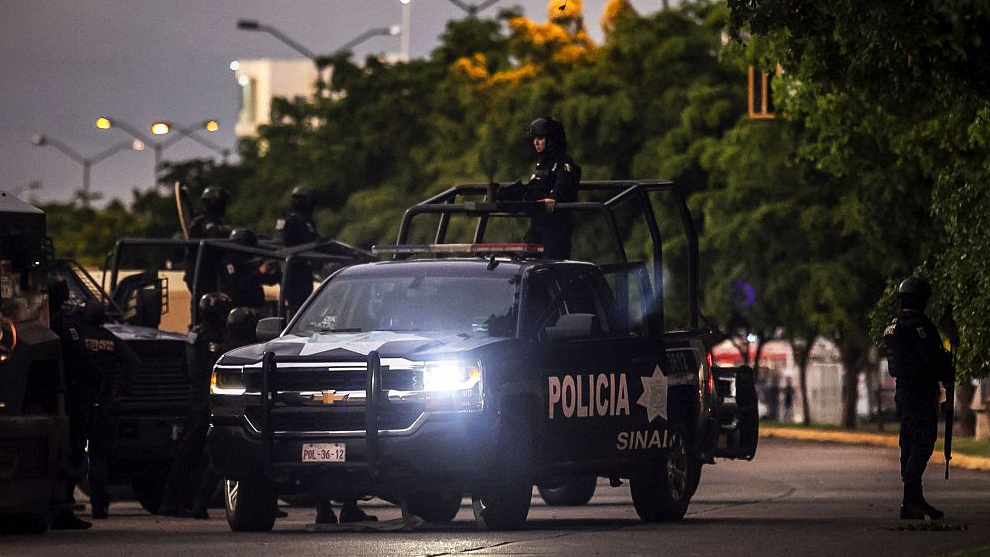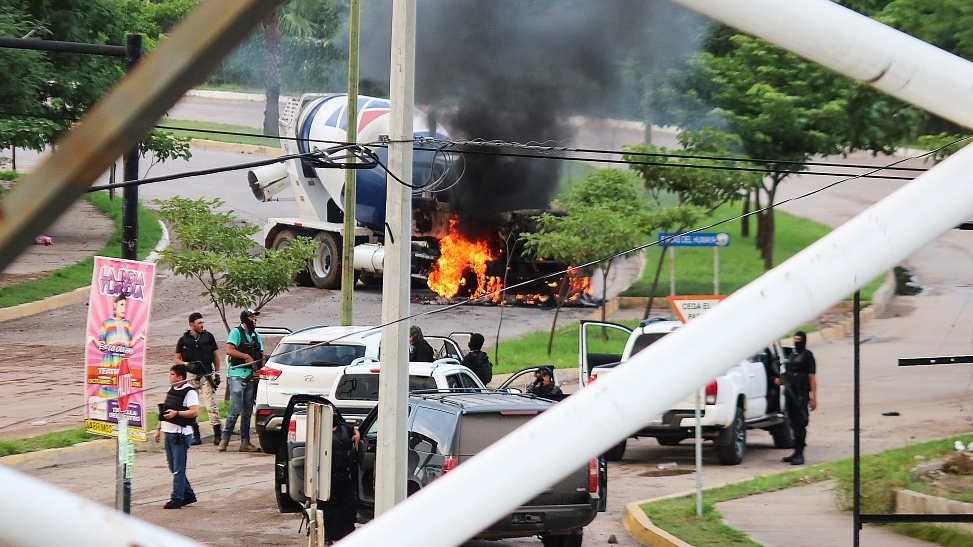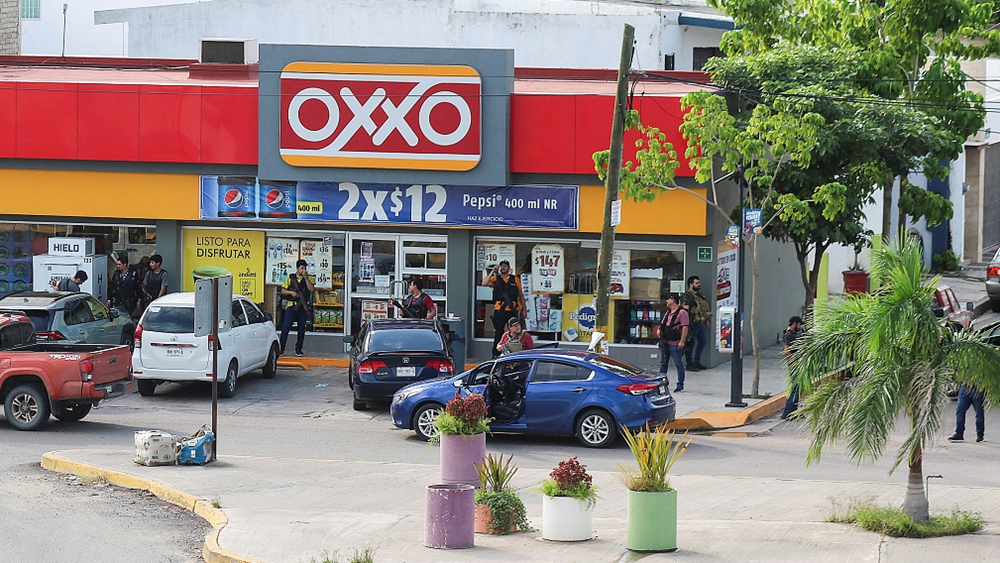
Mexican police patrol in a street of Culiacan, state of Sinaloa, October 17, 2019. /VCG Photo
Mexican police patrol in a street of Culiacan, state of Sinaloa, October 17, 2019. /VCG Photo
Mexico jumped into action on Monday in the wake of a cartel assault that freed Joaquin "El Chapo" Guzman's son in a northern city, sending in special forces to patrol the town and asking U.S. officials to stop gun-smuggling across the shared border.
More than 400 soldiers turned up in Culiacan over the weekend after gunmen from the Sinaloa cartel briefly took control of the city and forced security forces to free the drug lord's son from a botched arrest attempt.
"We are going to protect the citizens, that is our mission," said General Carlos Ramon Carrillo de Villar, who oversaw formations of soldiers marching at a media event. "We are fighting insecurity."
The convoys of army trucks with mounted machine guns rumbling through Culiacan's streets were meant to instill confidence. But a national poll on Monday showed two thirds of respondents believe drug lords and mobsters are more powerful than the government after the gun battles last week that forced an army retreat.

Cartel gunmen are seen near a burning truck during clashes with federal forces following the detention of Ovidio Guzman, son of drug kingpin Joaquin "El Chapo" Guzman, in Culiacan, Sinaloa state, October 17, 2019. /VCG Photo
Cartel gunmen are seen near a burning truck during clashes with federal forces following the detention of Ovidio Guzman, son of drug kingpin Joaquin "El Chapo" Guzman, in Culiacan, Sinaloa state, October 17, 2019. /VCG Photo
President Andres Manuel Lopez Obrador has insisted the decision to release Ovidio Guzman was the only way to save lives after cartel henchmen erected roadblocks, torched trucks and opened fire with heavy, military-style weapons.
After a telephone call with U.S. President Donald Trump over the weekend, Mexican Cabinet ministers met with U.S. Ambassador Christopher Landau to ask for help stemming the flow of weapons bought legally in the United States and sold to cartels south of the border.
In a statement, Mexico said the United States had promised efforts to clamp down on the illegal trade, which is believed to be the source of most firearms in the hands of Mexican criminals.
"Arms trafficking is a significant problem and one the United States is addressing with renewed focus in Mexico," said a State Department official.
Videos of the attacks in Culiacan last week showed cartel soldiers firing armor piercing .50 caliber rifles and at least one truck mounted with a heavy machine gun – weaponry that is not available by legal means in Mexico.

Cartel gunmen are seen near a burning truck during clashes with federal forces following the detention of Ovidio Guzman, son of drug kingpin Joaquin "El Chapo" Guzman, in Culiacan, Sinaloa state, October 17, 2019. /VCG Photo
Cartel gunmen are seen near a burning truck during clashes with federal forces following the detention of Ovidio Guzman, son of drug kingpin Joaquin "El Chapo" Guzman, in Culiacan, Sinaloa state, October 17, 2019. /VCG Photo
Lopez Obrador has faced heavy criticism for the handling of the raid, which critics say looked like a capitulation to criminals and risked encouraging cartels to use more force to resist arrests.
The president has defended his policy of trying to dial down clashes with drug cartels to reduce murder rates.
Had security forces attempted to hold Guzman against the cartel foot soldiers, many people could have been killed, Lopez Obrador told a regular news conference.
"Not just the criminals, who are also human beings, the soldiers, who we must protect," he said, "but (also) civilians."
"I always have great belief in the wisdom of the people, and I know that the majority of Mexicans supported the government's decision," the veteran leftist said.
Source(s): Reuters